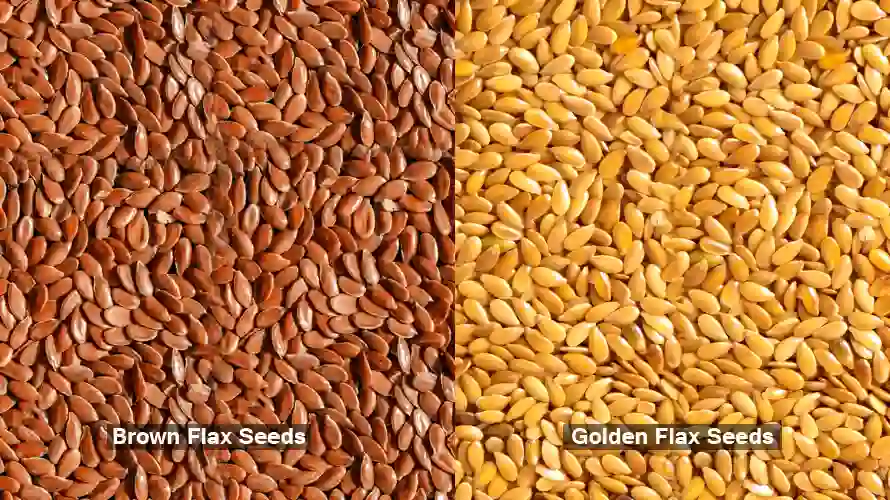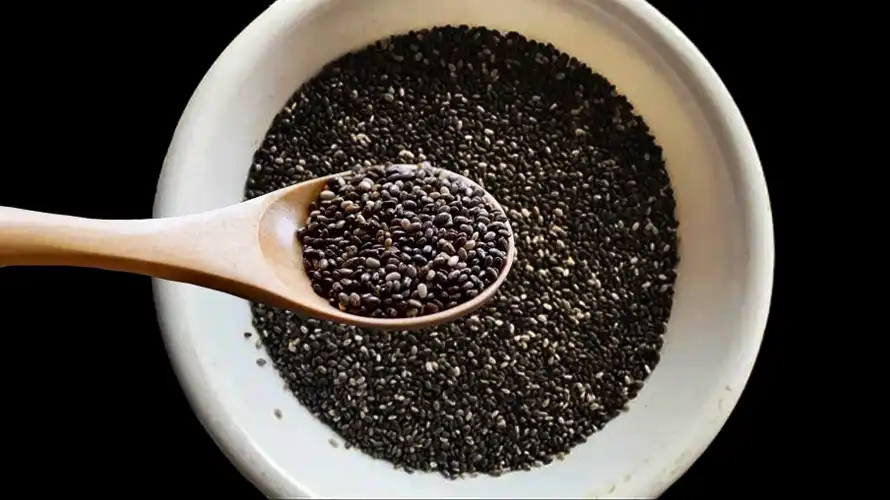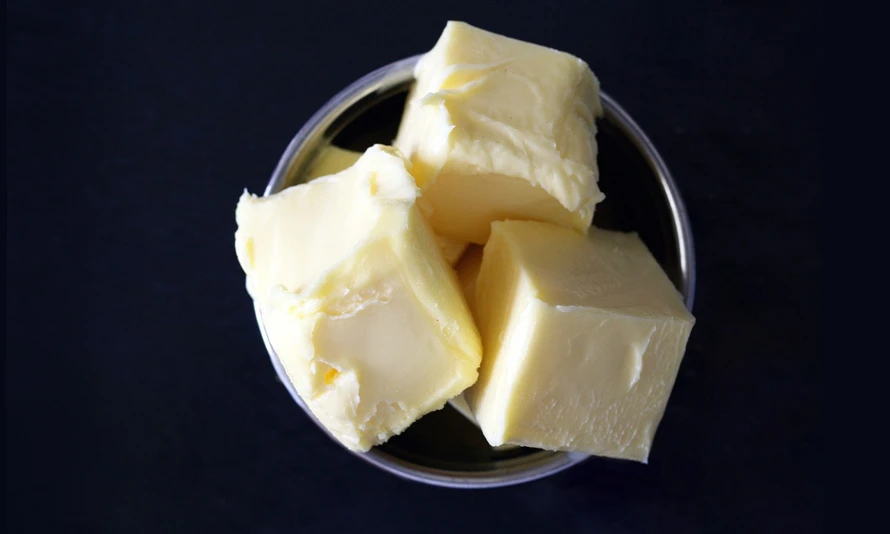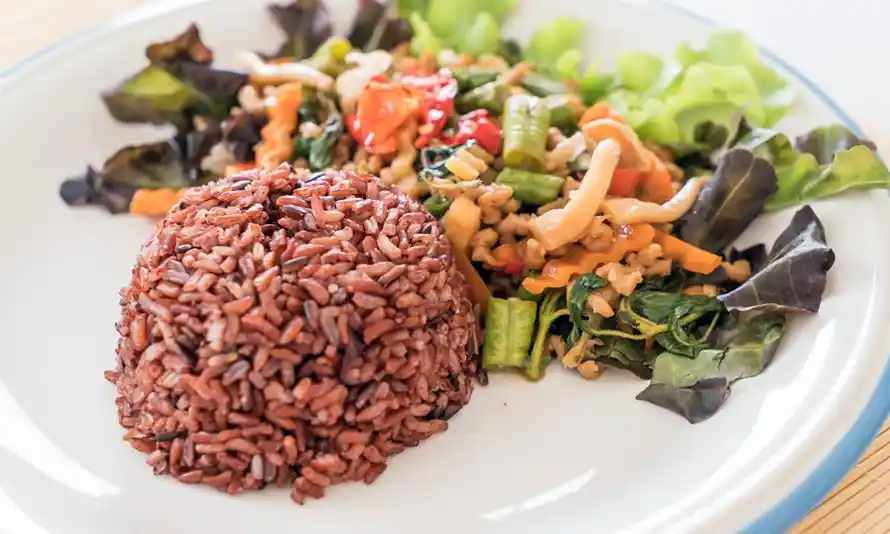Flax seeds offer a variety of health benefits, supporting heart health, digestion, and overall wellness. Adding them to your diet is a simple way to enhance your nutritional intake.

Flax seeds, also known as linseeds, have been a staple in diets around the world for thousands of years. Known for their impressive nutritional profile and health benefits, these small, unassuming seeds pack a powerful punch. Flax seeds come from the flax plant (Linum usitatissimum), which has been cultivated since ancient times for both its seeds and fibers. This guide explains flax seeds uses, health benefits, recipes, potential cautions, and some fun facts.
Yes, there are two main varieties of flax seeds:

1. Brown Flax Seeds
- Appearance: Dark brown in color.
- Nutritional Content: Similar to golden flax seeds, brown flax seeds are rich in omega-3 fatty acids, fiber, and lignans. They have a slightly nuttier flavor.
- Uses: Commonly used in baking, smoothies, and as a topping for yogurt or oatmeal.
2. Golden Flax Seeds
- Appearance: Light golden or yellow in color.
- Nutritional Content: Golden flax seeds also contain a high amount of omega-3 fatty acids, fiber, and lignans. The nutritional difference between brown and golden flax seeds is minimal.
- Uses: Preferred in certain recipes for their lighter color and milder flavor, making them a popular choice for baked goods and salads.
Both varieties are nutritionally similar and can be used interchangeably in most recipes. The choice between brown and golden flax seeds often comes down to personal preference or the desired appearance in a dish.
Nutritional Profile
Flax seeds are a nutritional powerhouse, offering a wide array of essential nutrients:
- Omega-3 Fatty Acids: Flax seeds are one of the best plant-based sources of alpha-linolenic acid (ALA), a type of omega-3 fatty acid. ALA is known for its anti-inflammatory properties and benefits for heart health.
- Fiber: Rich in both soluble and insoluble fiber, flax seeds aid in digestive health, help regulate blood sugar levels, and contribute to a feeling of fullness, which can be beneficial for weight management.
- Protein: Flax seeds contain a moderate amount of high-quality protein, which supports muscle repair and growth.
- Lignans: These are phytoestrogens with antioxidant properties. Flax seeds have one of the highest concentrations of lignans found in any plant food, which may contribute to hormone balance and cancer prevention.
- Vitamins and Minerals: Flax seeds are a good source of B vitamins, magnesium, manganese, phosphorus, and selenium, all of which are essential for overall health.
Health Benefits
- Heart Health: The omega-3 fatty acids in flax seeds help reduce inflammation and lower the risk of cardiovascular diseases. They can help lower cholesterol levels and improve blood vessel function.
- Digestive Health: The high fiber content aids in digestion by promoting regular bowel movements and preventing constipation. It also supports a healthy gut microbiome.
- Hormonal Balance: Lignans in flax seeds may help balance hormone levels, potentially reducing the risk of hormone-related cancers such as breast and prostate cancer.
- Anti-Inflammatory Properties: Flax seeds’ omega-3s and lignans have anti-inflammatory effects that may benefit conditions like arthritis and autoimmune disorders.
- Blood Sugar Control: The fiber and healthy fats in flax seeds help stabilize blood sugar levels, making them a good addition to the diet for managing diabetes.
- Skin Health: The fatty acids and antioxidants in flax seeds can improve skin hydration and reduce inflammation, helping to maintain healthy, youthful skin.
Ways to Use Flax Seeds
- Ground Flax Seeds: Grinding flax seeds helps improve their digestibility and nutrient absorption. Ground flax seeds can be added to smoothies, yogurt, oatmeal, and baked goods.
- Flax Seed Oil: This oil is rich in omega-3 fatty acids and can be used in salad dressings or drizzled over vegetables. However, it should not be used for high-heat cooking as it has a low smoke point.
- Flaxseed Meal: This is essentially ground flax seeds with a finer texture. It can be used as a flour substitute in baking or as a thickening agent in recipes.
- Flax Seed Gel: Made by soaking ground flax seeds in water, this gel can be used as a natural hair conditioner or a binding agent in vegan recipes.
- Whole Flax Seeds: While they can be eaten whole, they are less digestible than ground flax seeds. They are often used in bread and granola for added texture.
Fun Facts and Interesting Details about Flax Seeds
Here are some fun and interesting facts about flax seeds:
- Ancient Superfood: Flax seeds have been used since ancient civilizations. The Egyptians, Greeks, and Romans valued them for their medicinal properties and as a food source. Cleopatra was known to use flax seeds for their beauty and health benefits.
- “The Fiber of the Gods”: The scientific name for the flax plant, Linum usitatissimum, translates to “the most useful,” highlighting its historical significance and versatility.
- Flaxseed Oil in Space: Flaxseed oil has been included in the diets of astronauts on space missions due to its high omega-3 content, which is beneficial for maintaining heart health and preventing inflammation in microgravity environments.
- Nutritional Powerhouse: Flax seeds contain more lignans than any other plant food. Lignans are compounds with antioxidant properties that may help balance hormones and reduce cancer risk. They have up to 800 times more lignans than other plant foods.
- Ancient Texts and Flax: Flax seeds are mentioned in ancient texts, including the Bible. The term “linen” used in biblical times refers to fabric made from flax fibers, showcasing its historical importance beyond just its seeds.
- Flax as a Fabric: The fibers of the flax plant have been used to make linen fabric for thousands of years. Flax was one of the first plants to be cultivated for textile purposes, and linen remains a popular fabric today.
- Eco-Friendly Crop: Flax is an environmentally friendly crop because it requires less water compared to other crops like cotton. It is also beneficial for soil health, often used in crop rotation to improve soil quality.
- Flaxseed as a Binder: Flaxseed meal can be used as a binding agent in vegan baking. When mixed with water, it forms a gel-like consistency that acts similarly to eggs in recipes.
- Flax Seeds and Beekeeping: Flax seeds are also used in beekeeping. Flax plants are attractive to bees, and the seeds are a valuable food source for honey production.
- Flaxseed and Mood: Some studies suggest that the omega-3 fatty acids in flax seeds can help improve mood and reduce symptoms of depression. They are sometimes recommended as a supplementary part of a mental health regimen.
- Flaxseed in Traditional Medicine: In traditional Chinese medicine, flax seeds have been used for their soothing effects on the digestive system. They are believed to help treat constipation and improve overall digestive health.
- Unique Nutrient Profile: Unlike many plant-based foods, flax seeds provide a combination of fiber, omega-3 fatty acids, and lignans, making them a unique and comprehensive nutritional source.
- Flaxseed in Pet Food: Flax seeds are sometimes included in pet food to improve the coat condition of animals. The omega-3s and fiber can benefit pets’ skin and digestion.
- Popular in Vegan Cooking: Flax seeds are a popular ingredient in vegan cooking as an egg substitute. Mixing ground flax seeds with water creates a gel-like substance that works well in baking recipes.
- Flaxseed’s Role in Agriculture: Flax is used in agriculture to prevent soil erosion. Its deep root system helps stabilize the soil, making it an important crop for sustainable farming practices.
These fun facts highlight the diverse uses and historical significance of flax seeds, reflecting their importance in nutrition, agriculture, and various cultures throughout history.
Potential Cautions When Using Flax Seeds
- Digestive Sensitivity: For some people, particularly those not used to a high-fiber diet, flax seeds can cause bloating, gas, or digestive discomfort. It’s best to start with small amounts and increase gradually.
- Blood Thinning: Flax seeds have a mild blood-thinning effect due to their omega-3 content. If you are on blood-thinning medication or have a bleeding disorder, consult your healthcare provider before consuming large amounts.
- Allergies: Although rare, some individuals may have an allergy to flax seeds. Symptoms can include itching, swelling, or difficulty breathing. If you suspect an allergy, seek medical advice.
- Phytic Acid: Flax seeds contain phytic acid, which can inhibit the absorption of certain minerals. However, for most people with a balanced diet, this is not a significant concern.
Flax Seeds Recipes
Here are some delicious and easy recipes featuring flax seeds:
1. Flaxseed Smoothie
Ingredients:
- 1 cup fresh or frozen berries (strawberries, blueberries, or raspberries)
- 1 banana
- 1 tablespoon ground flax seeds
- 1 cup almond milk (or any milk of your choice)
- 1 tablespoon honey or maple syrup (optional)
Instructions:
- Add the berries, banana, ground flax seeds, and almond milk to a blender.
- Blend until smooth and creamy.
- Taste and adjust sweetness if desired by adding honey or maple syrup.
- Pour into a glass and enjoy!
2. Flaxseed Pancakes
Ingredients:
- 1 cup all-purpose flour (or whole wheat flour)
- 2 tablespoons ground flax seeds
- 2 tablespoons sugar (or sweetener of choice)
- 2 teaspoons baking powder
- 1/2 teaspoon salt
- 1 cup milk (dairy or plant-based)
- 1 egg
- 2 tablespoons melted butter or oil
Instructions:
- In a large bowl, whisk together flour, ground flax seeds, sugar, baking powder, and salt.
- In another bowl, mix milk, egg, and melted butter or oil.
- Pour the wet ingredients into the dry ingredients and stir until just combined.
- Heat a non-stick skillet or griddle over medium heat and lightly grease.
- Pour batter onto the skillet and cook until bubbles form on the surface. Flip and cook until golden brown.
- Serve with your favorite toppings.
3. Flaxseed Energy Balls
Ingredients:
- 1 cup rolled oats
- 1/2 cup ground flax seeds
- 1/2 cup nut butter (peanut butter or almond butter)
- 1/4 cup honey or maple syrup
- 1/4 cup mini chocolate chips or dried fruit (optional)
- 1/2 teaspoon vanilla extract
Instructions:
- In a bowl, mix oats, ground flax seeds, nut butter, honey or maple syrup, and vanilla extract until well combined.
- Stir in mini chocolate chips or dried fruit if desired.
- Roll the mixture into small balls and place on a baking sheet.
- Refrigerate for at least 30 minutes to firm up.
- Store in an airtight container in the refrigerator for up to a week.
4. Flaxseed Muffins
Ingredients:
- 1 1/2 cups whole wheat flour
- 1/2 cup ground flax seeds
- 1/2 cup sugar (or sweetener of choice)
- 1 tablespoon baking powder
- 1/2 teaspoon salt
- 1/2 cup milk (dairy or plant-based)
- 1/4 cup vegetable oil
- 1 large egg
- 1 teaspoon vanilla extract
Instructions:
- Preheat your oven to 375°F (190°C) and line a muffin tin with paper liners.
- In a large bowl, mix flour, ground flax seeds, sugar, baking powder, and salt.
- In another bowl, whisk together milk, oil, egg, and vanilla extract.
- Add the wet ingredients to the dry ingredients and stir until just combined.
- Divide the batter evenly among the muffin cups.
- Bake for 18-20 minutes or until a toothpick inserted into the center comes out clean.
- Let cool before serving.
5. Flaxseed Crusted Chicken
Ingredients:
- 4 boneless, skinless chicken breasts
- 1/2 cup ground flax seeds
- 1/2 cup breadcrumbs
- 1/4 cup grated Parmesan cheese (optional)
- 1 teaspoon paprika
- 1/2 teaspoon garlic powder
- Salt and pepper to taste
- 1 egg, beaten
Instructions:
- Preheat your oven to 400°F (200°C).
- In a shallow dish, combine ground flax seeds, breadcrumbs, Parmesan cheese, paprika, garlic powder, salt, and pepper.
- Dip each chicken breast into the beaten egg, then coat with the flaxseed mixture.
- Place the coated chicken breasts on a baking sheet lined with parchment paper.
- Bake for 20-25 minutes or until the chicken is cooked through and the coating is crispy.
- Serve with a side of vegetables or salad.
These recipes showcase the versatility of flax seeds and how they can be incorporated into various dishes to enhance both flavor and nutrition. Enjoy experimenting with these recipes!
Final words
Flax seeds are a versatile and nutrient-dense addition to any diet. Their rich content of omega-3 fatty acids, fiber, and lignans offers a range of health benefits, from improved heart health to better digestion and hormonal balance. Whether you choose to incorporate them as whole seeds, ground, or as oil, flax seeds can enhance your diet and support overall well-being. However, as with any dietary change, it’s important to introduce them gradually and be mindful of any potential sensitivities or interactions with medications.
FAQ
Hi…Just have a look at this also!






